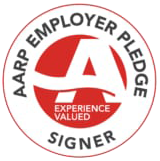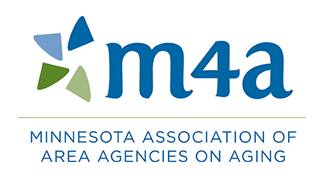What Helps me Protect my Rights?
In Minnesota your rights are protected by the law. The following describe advocacy and legal means to assist you.
If you are interested in learning more, call the Senior LinkAge Line®: Link to a Local Aging Expert at 1-800-333-2433. They will provide you with additional and more specific information about services and the agencies and organizations that provide them. You can also access information at the MinnesotaHelp.info® website.
Conservatorship
A court-appointed conservator is responsible to ensure that the financial needs and property matters of a vulnerable adult, who would otherwise be in danger of receiving inadequate care and/or supervision, are being met.
Durable Power of Attorney
A written authorization for someone to handle property or financial matters for you that continues beyond your incapacity.
Guardianship
Appointed guardian is responsible to handle the health care matters of a vulnerable adult, who would otherwise be in danger of receiving inadequate or unwanted care.
Legal Services
Attorneys and paralegals are available to resolve legal matters by providing legal education, information and advice, making referrals and representing the client in legal proceedings. Legal Services are free and targeted to low-income older adults. Some of the issues addressed by Legal Services include public benefits, unemployment, tenant/landlord problems, discrimination, veteran benefits, consumer protection, etc.
Minnesota Health Care Directive
A legal document that allows an adult to state his/her wishes for health care in the event of incapacity and the inability to make decisions. Sometimes known as a living will, the health care directive does not need to be prepared by a lawyer. A proxy can be named to make decisions on one’s behalf. Copies of the completed document should be distributed to proxies and health care providers.
Ombudsman Services
The Office of Ombudsman for Long-Term Care serves as an impartial third party who assists in resolving complaints about nursing homes, long term care residential facilities, home care agencies and hospitals. Issues can include safety, health care quality, patient rights, government benefits and other disputes or concerns.
Power of Attorney
Written authorization for someone to handle property or financial matters for you.
Provider Orders for Life-Sustaining Treatment (POLST) Form
A signed medical order form that communicates the patient’s end-of life health care wishes to other health care providers during an emergency. The form serves as a tool by which providers can discuss end-of-life treatment options with patients diagnosed with a serious illness.
Vulnerable Adult/Adult Protection Services
Minnesota law protects adults who are vulnerable to maltreatment. Vulnerable Adult/Adult Protection Services investigate alleged abuse, neglect, exploitation or abandonment. Suspected maltreatment should be reported to the common entry point, which is typically the county social services office.





